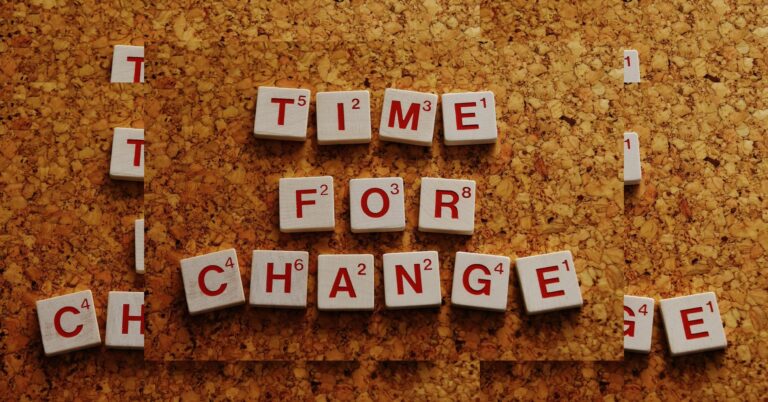There are many things that we can do to improve ourselves, and by extension our lives. In this blog post I am writing about the three that I believe are the most important, and the three that people seem to struggle with the most. I hope that you enjoy the read and find value in the content. If you do, I will appreciate it if you like and share it, and of course, comments will be great. The three things I will talk about are:
- Do what is right regardless of what you are feeling.
- Celebrate your imperfection.
- Let go.
Let us begin.
Do What is Right Regardless of What You Are Feeling
“The truth of the matter is that you always know the right thing to do. The hard part is doing it.” -Robert H. Schuller
There is an inherent tension in human nature between emotion and action, a constant pull between what we feel and what we know we should do. This tension is most apparent in moments of internal conflict when doing what is right feels like an uphill battle against the weight of our emotions. But this is precisely what forges character. There is a certain power in doing what is right, regardless of what we feel in the moment, because it speaks to a deeper integrity, one that surpasses the fleeting nature of emotions and taps into a steadfastness that defines who we are.
Philosophically speaking, this is a battle between our higher self and our lower self. Our higher self represents the part of us that knows the value of our long-term well-being, the importance of maintaining integrity, and the pursuit of what is good and true. Our lower self, on the other hand, is rooted in impulsive desires, temporary frustrations, and the emotions that often cloud our judgment. Aristotle spoke of the need to develop virtues through habit, recognising that it is only by repeated action that we become virtuous people. So, in a sense, doing what is right is not just about the moment—it is about shaping the very fabric of our character.
The reality check here is that our feelings are fickle. We have all experienced how rapidly emotions can change. One moment, anger might convince us that our retaliation is justified, but a few hours later, we may look back with regret. Fear may paralyse us in making a tough decision, but once we overcome it, we often wonder what we were so afraid of. The problem arises when we let these emotions dictate our behaviour. The truth is feelings are not facts. They are reactions, often rooted in past experiences, fears, and sometimes even irrational thoughts. While feelings deserve our acknowledgment and understanding, they should never take control of us.
Why is this important? Because life is full of moments where we must choose between what feels easy and what is right. Relationships, careers, personal integrity are all built on a foundation of doing what is right. When we make choices based on fleeting emotions, we risk compromising the things that matter most. Trust, whether with ourselves or others, erodes when we allow feelings to drive our actions. Consistently doing what is right, on the other hand, builds a legacy of integrity and respect, both internally and externally. It reinforces our self-respect, and others learn to trust in our reliability.
The practical side of this lies in learning how to manage emotions rather than them controlling us. One of the most effective ways to do this is through self-reflection and mindfulness. When emotions are high, it is often helpful to pause before reacting, giving yourself time to step back and assess whether the action you are about to take aligns with your values. You might ask yourself, “If I act on this feeling now, how will I feel about it tomorrow?” Often, this moment of reflection can shift the emotional intensity and allow for clearer thinking.
Another practical tool is to have a set of guiding principles that you rely on when emotions flare. If you know your core values—honesty, kindness, accountability—you can use them as a touchstone in difficult moments. This makes decision-making less about what you are feeling and more about who you are choosing to be in that moment.
In the end, doing what is right regardless of how you feel is an exercise in self-mastery. It is the difference between life leading you, and you taking the lead in your life. It does not mean suppressing emotions, but rather choosing to act from a place of wisdom rather than reaction. The long-term rewards of such choices, though sometimes invisible in the moment, are a testament to a life lived with integrity, purpose, and freedom from the whims of our ever-changing emotions.
Celebrate Your Imperfection
“The thing that is really hard, and really amazing, is giving up on being perfect and beginning the work of becoming yourself.” -Anna Quindlen
In a world that often pushes us toward perfectionism, it can feel almost rebellious to celebrate imperfection. There is a deep-rooted desire in many of us to be flawless—to avoid mistakes, to present an image of ourselves that is unmarred by shortcomings. But what if our imperfections are not just things to be tolerated by us, but rather celebrated? What if, instead of seeing them as obstacles, we recognised them as the very things that make us human and provide us with opportunities for growth? The truth is, perfection is an illusion, and chasing it often leads to frustration, self-doubt, and dissatisfaction.
Philosophically, the notion of imperfection speaks to the heart of what it means to be human. Ancient wisdom, from the Stoics to the Taoists, reminds us that life is not about reaching a state of flawlessness but about embracing the process of becoming. The Stoics, for example, emphasised accepting what is beyond our control, which includes our own imperfections. In this light, imperfection is not something to be ashamed of but a reflection of our nature—a work in progress, always evolving. The Japanese concept of wabi-sabi celebrates the beauty found in imperfection, encouraging us to appreciate things that are incomplete or flawed, because they mirror the essence of life itself: transient, ever-changing, and deeply imperfect.
The reality check here is simple: we are all imperfect. Everyone you meet is carrying their own set of insecurities, flaws, and mistakes. Yet, we often feel as though we are the only ones struggling with these imperfections, comparing our behind-the-scenes to someone else’s highlight reel. Social media, for example, creates the illusion of perfection in others’ lives, but it is just that—an illusion. The truth is, perfection does not exist, and those who appear perfect are simply presenting the most polished versions of themselves. We can spend our lives trying to fit into this false mould, or we can choose the more liberating path: to accept and celebrate our imperfections for what they are.
Why is it so important to celebrate imperfection? Because when we stop striving for perfection, we give ourselves permission to be real. We release the immense pressure of living up to impossible standards and instead focus on what truly matters—growth, connection, and authenticity. Celebrating imperfection fosters self-compassion, allowing us to treat ourselves with the same kindness and understanding that we would offer to a dear friend. It also opens the door to vulnerability, which is essential for building deep and meaningful relationships. Perfectionism, on the other hand, creates distance. When we hide our flaws, we shield ourselves from genuine connection. True connection comes when we allow others to see us as we are, flaws and all.
The practical side of this is learning to see imperfection as an integral part of growth. Mistakes, failures, and flaws are not dead ends—they are stepping stones. When we fail, we learn, and that learning moves us forward. Think of any skill you have ever developed. Did you master it without making mistakes? Of course not. Every failure contains within it the seeds of improvement. When we celebrate our imperfection, we acknowledge that life is a process of trial and error. This mindset shift allows us to take more risks, try new things, and approach challenges with a sense of curiosity rather than fear.
It is also helpful to shift the way we talk to ourselves. Instead of berating yourself for not being perfect, try recognising the effort and progress you have made. Rather than saying, “I’m terrible at this,” try saying, “I’m learning, and it’s okay to make mistakes along the way.” This simple reframing can make a world of difference in how we experience our imperfections.
In celebrating our imperfections, we reclaim our humanity. We allow ourselves to show up, fully and authentically, in a world that often demands perfection. This does not mean we stop striving for excellence, but we do so with the understanding that imperfection is part of the journey, not a detour. There is strength in acknowledging our flaws, and beauty in embracing the messy, imperfect reality of life. When we celebrate our imperfection, we open ourselves up to growth, connection, and the possibility of living a life that is truly our own.
Let Go
“People have a hard time letting go of their suffering. Out of a fear of the unknown, they prefer suffering that is familiar.” -Thich Nhat Hanh
‘Letting go’ is one of the most profound, yet difficult, actions we can take. It often seems counterintuitive. In a world where we are taught to strive, hold on, and persist, the idea of letting go can feel like giving up or losing control. But true freedom often comes not from holding on tightly, but from releasing our grip on the things that weigh us down—whether it is past hurts, unrealistic expectations, or the illusion of control itself. ‘Letting go’ is not a passive act. It is a conscious decision to free ourselves from burdens that are no longer serving us, to create space for new possibilities.
Philosophically, the concept of letting go has deep roots in many traditions. Buddhism, for example, teaches the importance of non-attachment, suggesting that much of human suffering comes from our tendency to cling to things, people, or outcomes. We grasp for permanence in a world that is inherently impermanent. The Stoics also embraced the idea of letting go by recognising that much of life is beyond our control. They advocated for focusing on what we can change—our attitudes, thoughts, and actions—while accepting what is outside of our influence. This idea of letting go is not about resignation or indifference, but about recognising the limits of our control and choosing to invest our energy where it will have the most impact.
The reality check here is that clinging to things—whether it is a toxic relationship, a past mistake, or an unattainable ideal—only serves to keep us stuck. We hold on out of fear, believing that if we let go, we will lose something essential. But often, what we are afraid of losing is not real; it is a projection of our fears or our need for control. Think about the times in your life when you have held onto something long past its expiration date—a job, a relationship, or even an idea about yourself. How much energy did you expend in trying to keep it alive? And how much relief did you feel once you finally let go? The truth is, we often hold on not because it is good for us, but because we fear the unknown that comes with letting go.
Why is letting go so important? Because holding on to what no longer serves us creates a mental and emotional burden that weighs us down. It prevents us from moving forward, from embracing change, and from living fully in the present. When we refuse to let go, we end up carrying baggage that clouds our judgment, limits our potential, and drains our energy. By letting go, we make room for growth, healing, and new opportunities. We allow ourselves to evolve, rather than our past or our fears defining us. ‘Letting go’ is about trust—trusting that life will continue to unfold, and that we will have the strength and resilience to navigate whatever comes our way.
Practically speaking, letting go requires us to confront our fears head-on. It means acknowledging the things we are holding onto and asking ourselves why. What is it that we are afraid of? Often, the act of simply recognising what we fear allows us to loosen our grip. Another powerful tool is mindfulness. By staying present and fully engaged in the current moment, we can observe our thoughts and emotions without getting caught up in them. This helps us to see that many of the things we hold on to are tied to past experiences or future anxieties, neither of which exist in the present moment.
Letting go also involves a shift in mindset—from one of scarcity to one of abundance. When we hold on tightly, it is often because we fear there will not be something better. But life is full of possibilities, and by letting go, we open ourselves up to new experiences, new relationships, and new perspectives. Letting go does not mean forgetting or ignoring. It means accepting that the past is unchangeable, and the future is uncertain, but right now, in this moment, we have the power to choose how we respond.
In the end, letting go is an act of liberation. It frees us from the constraints of our own minds, from the weight of our fears and anxieties. It allows us to step into the unknown with courage, to live more fully, and to embrace the ebb and flow of life without resistance. ‘Letting go’ is not about loss—it is about creating space for what is next. And when we let go, we discover that we have not lost anything at all. We have gained freedom.








